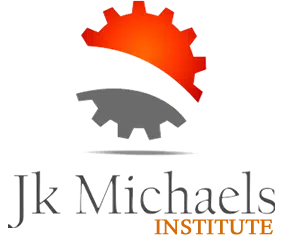Analytical techniques in business
Unlocking the Power of Analytical Techniques in Business – Discover the Benefits Now!
Do you want to gain a competitive edge in the business world? If so, you need to understand the power of analytical techniques in the business. Analytical techniques allow businesses to make more informed decisions and better understand their customers, competitors, and the overall market. In this blog, we’ll discuss the benefits of analytical techniques in business and how you can use them to your organisation’s advantage. So, let’s get started.
Introduction to Analytical Techniques in Business
Analytical techniques in the business refer to the various methods and techniques used to analyse data and make decisions. These techniques involve using data and statistics to identify patterns and trends, which can be used to predict future outcomes. By using analytical techniques, businesses can gain insight into their customers, competitors, and markets, allowing them to make more informed decisions.
Analytical techniques can also identify problems and opportunities and develop new strategies and products. In addition, analytical techniques can be used to measure an organisation’s performance and identify areas for improvement. They are also used to track performance and to measure the success of a particular strategy or product.
In short, analytical techniques in business are potent tools that can be used to understand better a business’s operations, customers, competitors, and overall market.
Benefits of Analytical Techniques in Business
Analytical techniques in business offer many advantages for organisations. Here are a few benefits of using these techniques in business:
1. Increased Efficiency: By using these techniques, businesses can identify areas where their operations can be improved and make changes accordingly. More efficiency and cost savings may result from this.
2. Improved Decision-Making: Analytical techniques can give businesses detailed insights into their customers, competitors, and markets. It allows them to make more informed decisions and develop better strategies.
3. Increased Revenue: By using these techniques, businesses can identify opportunities and develop strategies to capitalise on them. It can lead to increased revenue and profits.
4. Reduced Risk: By using analytical techniques, businesses can recognise potential dangers and take action to reduce them. It can be beneficial to reduce the risk of failure and ensure success.
5. Better Customer Insights: Analytical techniques can give businesses detailed insights into customers’ needs and preferences. It allows them to serve their customers better and develop better products and services.
Types of Analytical Techniques in Business
There are many different types of techniques in the business. Some of the most common are listed below:
1. Descriptive Analytics: Descriptive analytics uses data and statistics to describe a situation or phenomenon. This type of analytics is often used to gain a better understanding of customer behaviour and preferences.
2. Predictive Analytics: Predictive analytics involves using data and statistics to predict future outcomes. This type of analytics is often used to identify trends and develop strategies to capitalise on them.
3. Prescriptive Analytics: Prescriptive analytics involve using data and statistics to develop strategies and solutions to a particular problem or opportunity. This type of analytics is often used to develop new products and services or to optimise existing ones.
4. Competitive Analytics: Competitive analytics involve the use of data and statistics to gain a better understanding of a business’s competitors and the overall market. This type of analytics is often used to develop strategies and tactics to gain a competitive advantage.
Analytical Models
Analytical models are mathematical models used to analyse data and make decisions. These models are often used to identify patterns and trends, as well as to predict future outcomes. Analytical models are used in many different areas, such as marketing, finance, operations, and customer service.
Analytical models can be used to identify customer segments, develop pricing strategies, optimise operations, and develop customer loyalty programs. By using analytical models, businesses can better understand their customers, competitors, and markets, enabling them to decide more intelligently and gain a competitive advantage.
Data-driven Business Decisions
Data-driven business decisions are decisions based on data and statistics. Businesses can better understand their customers, competitors, and markets by using data and statistics. It allows them to make more informed decisions and develop better strategies.
Data-driven business decisions can be used to identify opportunities and develop strategies to capitalise on them. They can also be used to identify problems and develop solutions to them. Data-driven business decisions can also be used to track performance and measure the success of a particular strategy or product.
Analytical Tools
Analytical tools are software programs used to analyse data and make decisions. These tools are often used to identify patterns and trends, as well as to predict future outcomes. For example, analytical tools can identify customer segments, develop pricing strategies, optimise operations, and develop customer loyalty programs.
Analytical tools can also be used to track performance and measure the success of a particular strategy or product. By using analytical tools, businesses can gain a better understanding of their customers, competitors, and markets, enabling people to make better knowledgeable choices and gain a competitive advantage.
Integrating Analytical Techniques in Business Strategy
Analytical techniques can be used to develop and implement an effective business strategy. Businesses can use these techniques to identify customer segments, develop pricing strategies, optimise operations, and develop customer loyalty programs. In addition, it helps ensure that the business is well-positioned to take advantage of opportunities and capitalise on them.
Analytical techniques can also be used to determine potential dangers and take precautions to reduce them. As a result, reducing the risk of failure and ensuring success can be beneficial. In addition, by integrating these techniques into their business strategies, businesses can better understand their customers, competitors, and markets, allowing them to help improve decision-making and acquire a competitive edge.
Analytical Techniques in Business Case Studies
Analytical techniques in business can be used to develop and implement effective strategies and solutions. It helps to understand better how businesses use techniques to their advantage; it is helpful to look at case studies. Case studies provide insights into how businesses use techniques to make decisions and gain a competitive advantage.
Case studies can provide valuable insights into how organisations use analytical techniques to identify customer segments, develop pricing strategies, optimise operations, and develop customer loyalty programs. In addition, by studying case studies, businesses can better understand how to use analytical techniques to their advantage.
Analytical Techniques in Business Courses
It is helpful to take courses in the subject to better understand these techniques in the business. These courses provide a comprehensive overview of the various analytical techniques and tools used in business. They can also provide insights into how businesses use analytical techniques to make decisions and gain a competitive advantage.
Business courses can also provide valuable tips and strategies for using analytical techniques to identify customer segments, develop pricing strategies, optimise operations, and develop customer loyalty programs. By taking courses in business analytical techniques, businesses can better understand how to use these techniques to their advantage.
Conclusion
Analytical techniques in business are potent tools that might be utilised to comprehend a business’s operations, customers, competitors, and overall market more clearly. By using these, businesses can identify customer segments, develop pricing strategies, optimise operations, and develop customer loyalty programs. These techniques can also be used to determine potential dangers and take precautions to eliminate them.
These can offer many advantages for organisations, including increased efficiency, improved decision-making, increased revenue, and reduced risk. It helps to gain a better understanding of how businesses use analytical techniques to their advantage, and it is helpful to look at case studies or take courses in the subject.
So, to unlock the power of these techniques in business, start by taking the JK Michaels PMP Certification Training today. Through this comprehensive course, you’ll learn the fundamentals of analytical techniques in business and how to use them to your organisation’s advantage. So, unlock your career potential today – take the JK Michaels PMP Certification Training now!
JK Michaels Institute offers other Sales and Marketing Courses.


